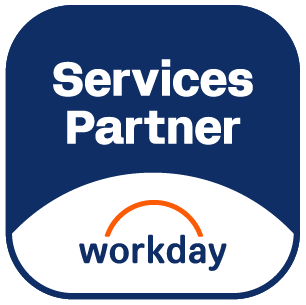Increase in ERP Adoption in Healthcare

Enterprise resource planning (ERP) adoption remains slow and steady, HIMSS Analytics recently reported.
Hospital ERP adoption increased from 18.8 percent of hospitals in 2008 to 38.4 percent of hospitals a decade later, the analysis of data from the HIMSS Analytics Logic Platform showed. The platform tracks the adoption of over 200 health IT tools.
Adoption of the healthcare business management system that integrates human resources, payroll, materials management, accounts payable, general ledger, supply chain management, and other business applications is still low. Approximately 60 percent of US hospitals currently do not have an ERP solution installed.
However, ERP adoption will continue to climb, the healthcare advisor stated. Almost 200 hospitals are currently contracting, installing, or planning to purchase an ERP solution. And another 46 hospitals expressed a strong interest in investing in an ERP solution in the near future.
Hospitals are starting to invest more in ERP solutions as they set their sights on business improvements.
In the past ten years, hospitals have focused their efforts on clinical and financial improvements, particularly through technology. For example, the push for value-based care and clinical quality improvement, as well as the federally-mandated meaningful use initiative, drove hospitals to install EMR or EHR systems. As a result, almost all hospitals (98 percent) now have an EHR system, HIMSS Analytics reported.
After installing technologies for clinical quality improvement, hospitals invested in financial solutions to further support their value-based care efforts. Now 99 percent of hospitals have patient billing software to improve healthcare payment management and patient experience, a core tenet of value-based care.
With robust adoption of clinical and financial solutions, hospitals are looking to continue improvements in other areas, such as healthcare business management. And that is where ERP adoption comes in, researchers explained.
“As clinical solutions like EMR have become the norm in most healthcare organizations, we would expect an increase in adoption rates for solutions like ERP that address back-office efficiencies and help manage operational costs,” they wrote in the analysis.
ERP solutions can help hospitals realize healthcare cost efficiency, the analysis continued. The solution’s ability to integrate several business applications into one system demonstrates the solution’s cost-efficiency.
The solution’s cost-efficiency benefit may be why ERP adoption is higher among non-profit hospitals, which tend to be more cost-conscious than their for-profit peers. About 1,690 out of the 2,114 hospitals with ERP solutions were non-profit, researchers reported.
ERP adoption rates were also higher in hospitals with over 100 beds. About one-half of hospitals with over 100 beds have an ERP solution, and they may have been the first to invest in the solution to better manage their larger organizations.
In contrast, smaller hospitals may be behind with ERP adoption because they have less access to the financial capital needed to address business improvements.
While researchers anticipate ERP adoption to continue, the increase in adoption rates will likely remain slow and steady, researchers added.
“Everyone is fighting for IT dollars, and it will be important to maintain a close watch on market dynamics that may impact future adoption rates for solutions such as ERP. It’s uncertain if or when ERP adoption rates will speed up or if anyone thing might spark a huge shift in this market. However, one thing is for sure: The ERP market has plenty of room to grow,” the analysis stated.
Currently, the hospital ERP market is dominated by two vendors: Infor Healthcare and Oracle. Infor Healthcare has a 42.18 percent market share and Oracle boasts a 33.17 percent market share, HIMSS Analytics reported.
Other hospital ERP vendors currently in the market include AllScripts (6.93 percent market share), SAP (6.44 percent), Cerner (4.31 percent), Meditech (3.96 percent), Microsoft (0.74 percent), Premier (0.64 percent), and CPSI (0.59 percent).
About 1.04 percent of hospitals also developed their own ERP solutions, the analysis showed.
Source:
https://revcycleintelligence.com/news/hospital-erp-adoption-up-to-38.4-and-will-continue-to-climb
